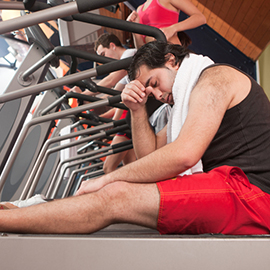Developing a more active lifestyle is a fundamental component to successfully losing weight and keeping it off long-term. Even after weight loss surgery, you’ll be encouraged to become more active and to start exercising regularly to help with your weight loss goals and muscle tone.
However, you have to be more careful with starting exercise following weight loss surgery, as you have to wait for your body to properly heal and ensure that you are ready for that kind of physical activity, even on your greatly reduced caloric intake.

For a large percentage of those who undergo weight loss surgery, exercise is not a regular component of their life until following the procedure, when weight loss has become a priority. Unfortunately, those early days of exercising, when you are just learning how to do certain activities, is the most common time to develop an injury from exercise. Improper form and attempting to do too much, too fast are two of the leading causes of exercise-related injuries.
Getting hurt early into your exercise program can really zap the motivation out of your workout routine. Go into your workouts with a clear and strong mindset regarding exercise safety and take caution. It is important that you pay close attention to how to engage in physical activity, that you wear the proper attire, and that you know when to stop.
This sort of “do it or bust” mindset can be very dangerous at the gym, especially if you are new to exercise. Working out is something you need to ease your way into. It is crucial that you know the difference between a bit of muscular burn from a good workout and more severe pain that could be a sign of danger.
If you ever experience any of the following symptoms, stop exercise immediately and contact your doctor:
The above symptoms could be an indication of dehydration, or could be something more severe. If you are experiencing lesser symptoms, such as extreme fatigue that lasts up to an entire day following your workout, nausea or vomiting during or after activity, difficulty breathing during activity or a highly increased pulse rate, then you may want to adjust your activity level. These lesser symptoms won’t make you stop altogether, but you do need to be careful!
Remember that exercise is something you want to ease into. Wear the right clothing (loose fitting clothes and sneakers!) and have a personal trainer guide you through how to use the machinery. And most importantly, talk with your weight loss surgeon before getting started with any new exercise.